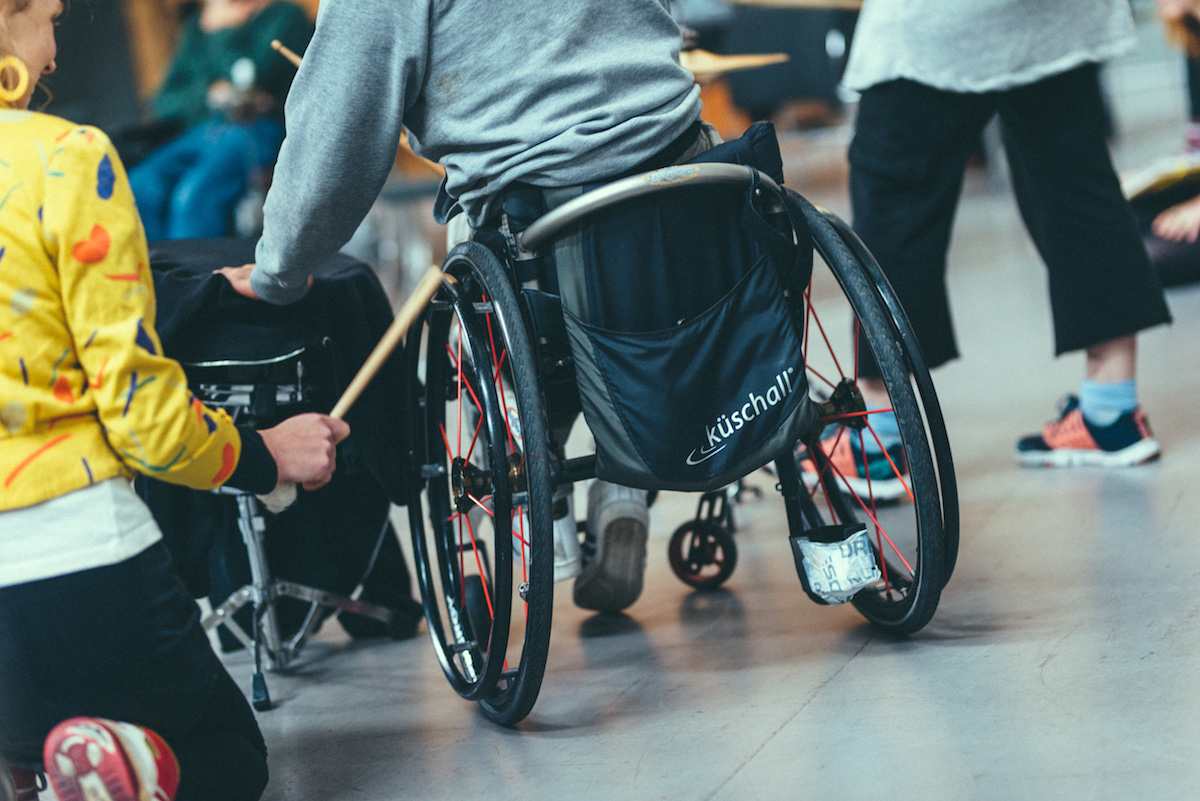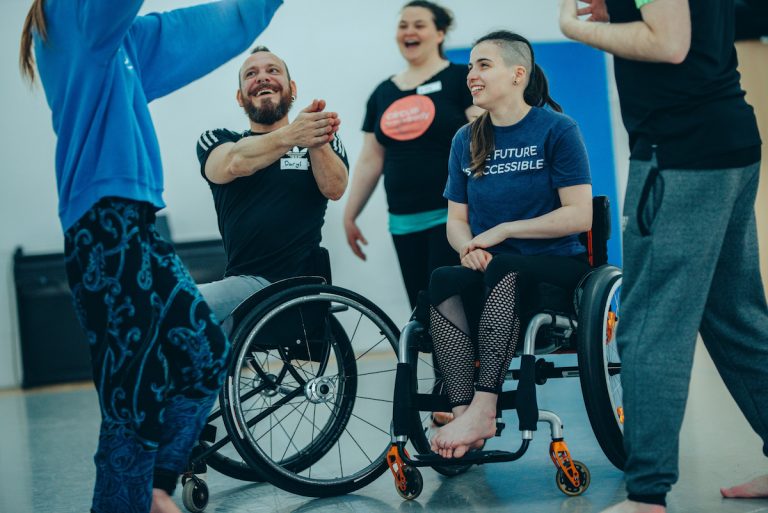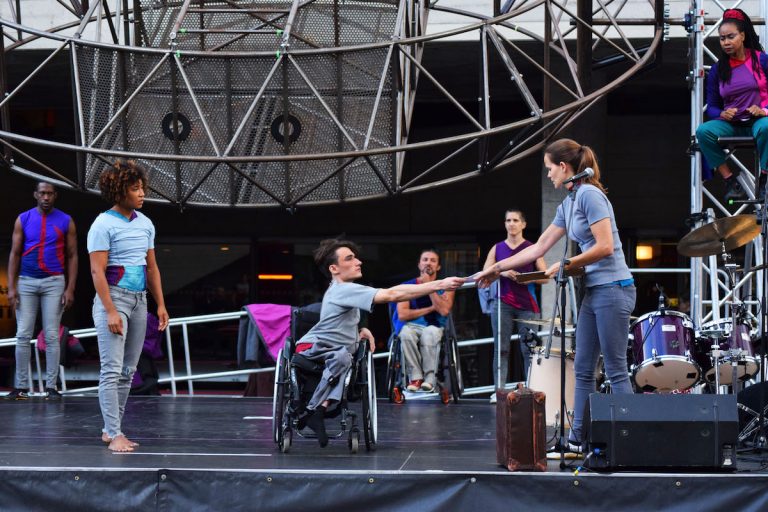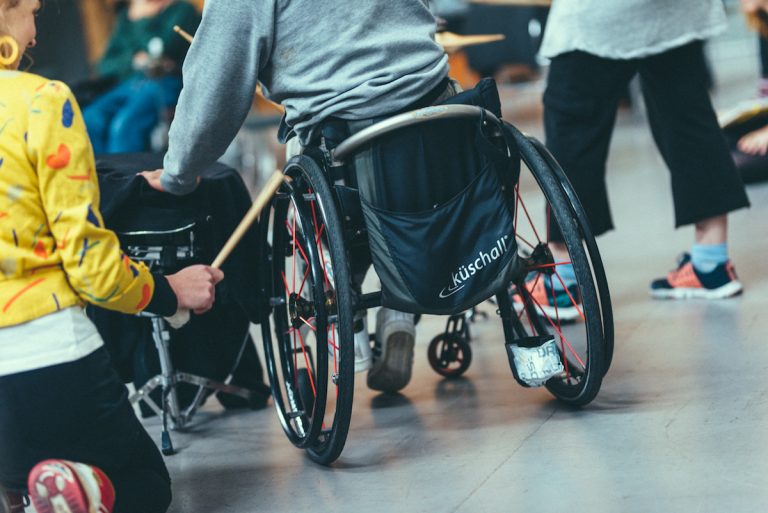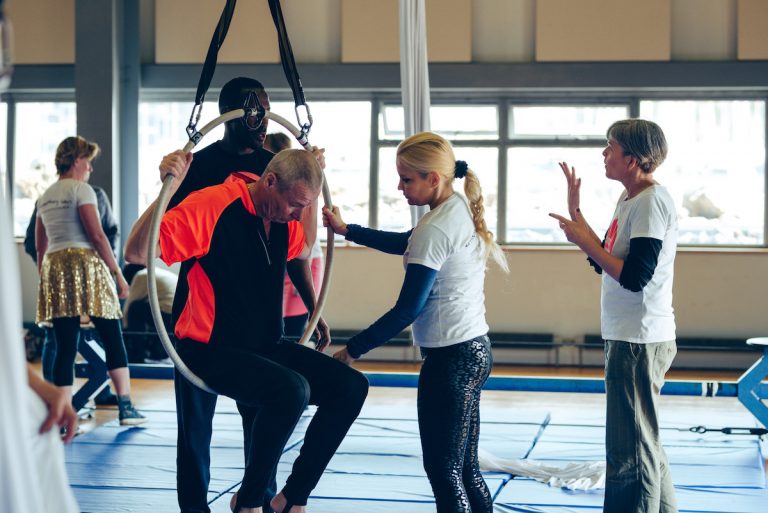When working with disabled and D/deaf people, you may worry that you don’t have the right language or that you might say the wrong thing. Here are some things to remember:
- Everybody is an individual, ask how you can communicate most effectively.
- Some disabled people find that written English is not accessible. It may be their second language or there may be other barriers to reading.
- British Sign Language has a completely different language structure from written and spoken English.
- Do not assume that someone with a different voice or speech pattern is learning disabled.
- Do not assume that you know the extent of someone’s understanding.
Face-to-face communication
- Always talk directly to disabled and D/deaf people – not to their access worker or interpreter.
- Allow time for an access worker or interpreter to communicate with a disabled or D/deaf person, while a person replies to you or uses a communication aid. Be patient, don’t interrupt and pay attention – it’s just a different way of having a conversation.
- Don’t panic if the person you are communicating with does not understand you at first, or if you can’t understand them. Never pretend you have understood. Ask them to repeat what they are saying until you understand them, and check your understanding.
- If you don’t know the best way to communicate, ask.
- If you are communicating with someone who is learning disabled, avoid jargon, speak clearly using open questions, short words and sentences and repeat important points. Leave space to check understanding and for clarification.
Written communication
-
- Adopt the principles of the Plain English Campaign.
- Provide alternative formats:
- Large Print and simple layouts (The Macular Society Guide offers examples)
- ‘Easy Read’ (Mencap offer a written guide and Photosymbols provide advice on using easy read images.
- Record audio and BSL versions of online written materials.
Dos and don’ts of lip reading
| Do | Don’t |
| Find a quiet place if possible | Shout: this will distort your lip patterns |
| Face the light and face the person, about a metre (3–4 feet) away and at the same level | Talk too fast – speak at normal speed |
| Stand where the background behind you is not too busy | Lean towards the person’s ear – they need to see your lips |
| Make sure the person is looking at you before you start | Use unconnected single words – phrases are easier to lip read |
| Keep your head still and upright and stop speaking if you turn your head away | Start a new topic without making sure the person understands. |
| Keep your hands away from your face | |
| Repeat words if necessary | |
| Rephrase what you are saying if the person doesn’t understand after a few repetitions | |
| Take frequent breaks. |
Your language guide
People often express a fear of “getting it wrong” or saying something inappropriate. This section does not seek to make you anxious about the language that you use, but rather to suggest ways of adapting your vocabulary. Trying not to exclude participants by use of vocabulary is habitual, but willingness to try is the key.
Don’t be afraid of making an error – when you are leading an inclusive class you are often managing lots of things at one time and you it’s extremely challenging to think about every word. Consider how you can be more universal in your language, descriptions and instructions, to offer a more inclusive process for everyone in the space.
For example:
- “Walk to the edge of the studio” can become “go”, “move” or “travel” to the edge of the studio.
- “Stand” can become “stand or sit”.
- “Notice contact with the floor” can become “notice contact with the floor or chair”.
- “Look” can become “sense, hear, become aware of”.
Language is always changing and people have different personal preferences.
Here is a guide to terms that are acceptable and those that aren’t.
☑ |
☒ |
| Disabled | Handicapped, crippled, invalided |
| Disabled people | The disabled, people with disabilities |
| Has … (an impairment) | Suffers from …, victim of … |
| Non-disabled | Able-bodied, normal, healthy |
| Learning disabled* | Mentally disabled, retarded, backward |
| Wheelchair user | Wheelchair bound, confined to a wheelchair, in a wheelchair |
| Deaf | The deaf |
| Deaf sign language user, BSL user | Deaf and dumb, deaf mute |
| Blind or partially sighted people, visually impaired people (VIP) | The blind |
| Mental health service user/survivor | Mentally ill, insane, mad, crazy |
| Has cerebral palsy | Spastic |
| Person of short stature | Dwarf, midget |
| Personal assistant/PA, support worker/access worker | Carer (unless used directly by a disabled person) |
| Accessible toilet | Disabled toilet |
| Accessible parking, blue badge parking | Disabled parking |
* Learning disabled people may choose to use terms such as ‘differently abled’ or neurodiverse. People with dyspraxia, dyslexia, dyscalculia, attention deficit hyperactivity disorder, autistic spectrum disorder, Tourette syndrome or mental health conditions, may also choose the term neurodiverse.

